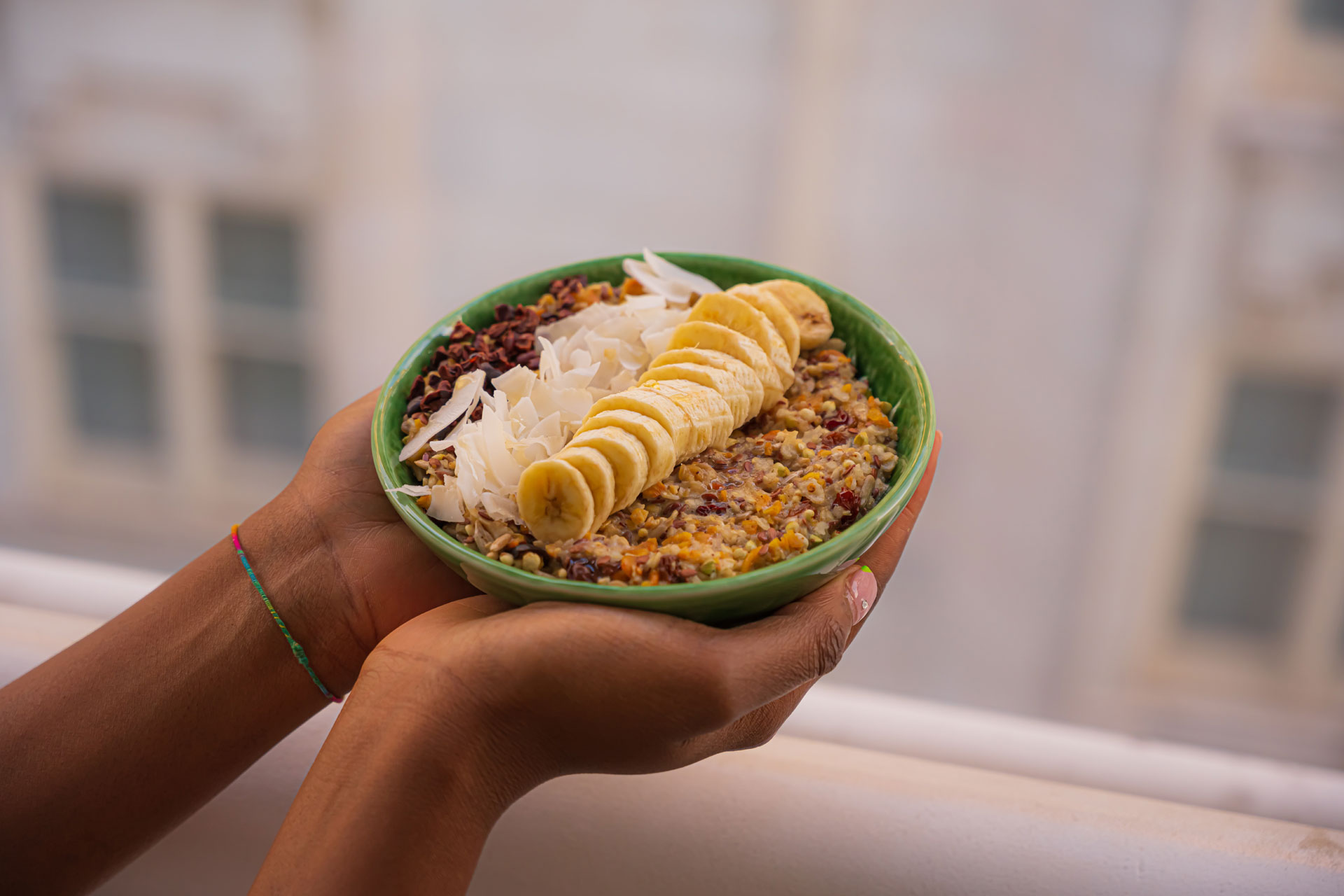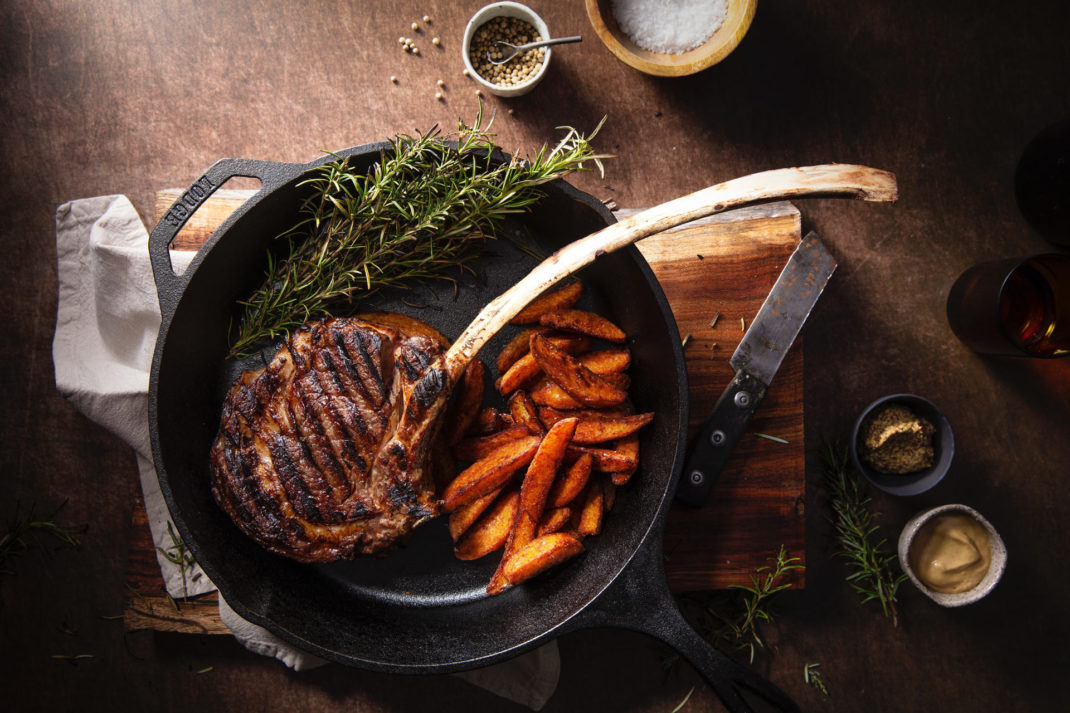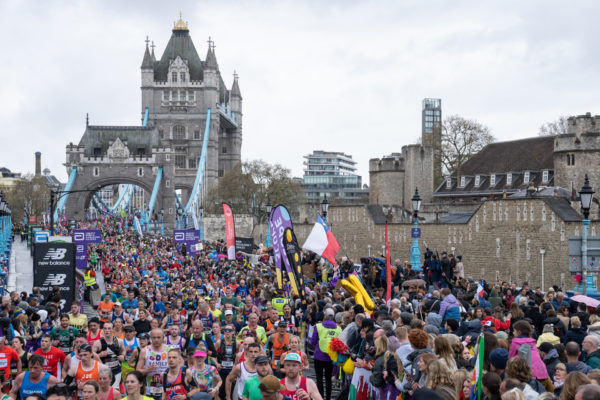What To Eat Before, During And After The London Marathon
By
1 year ago
A nutritionist’s guide to fuelling your body for race day
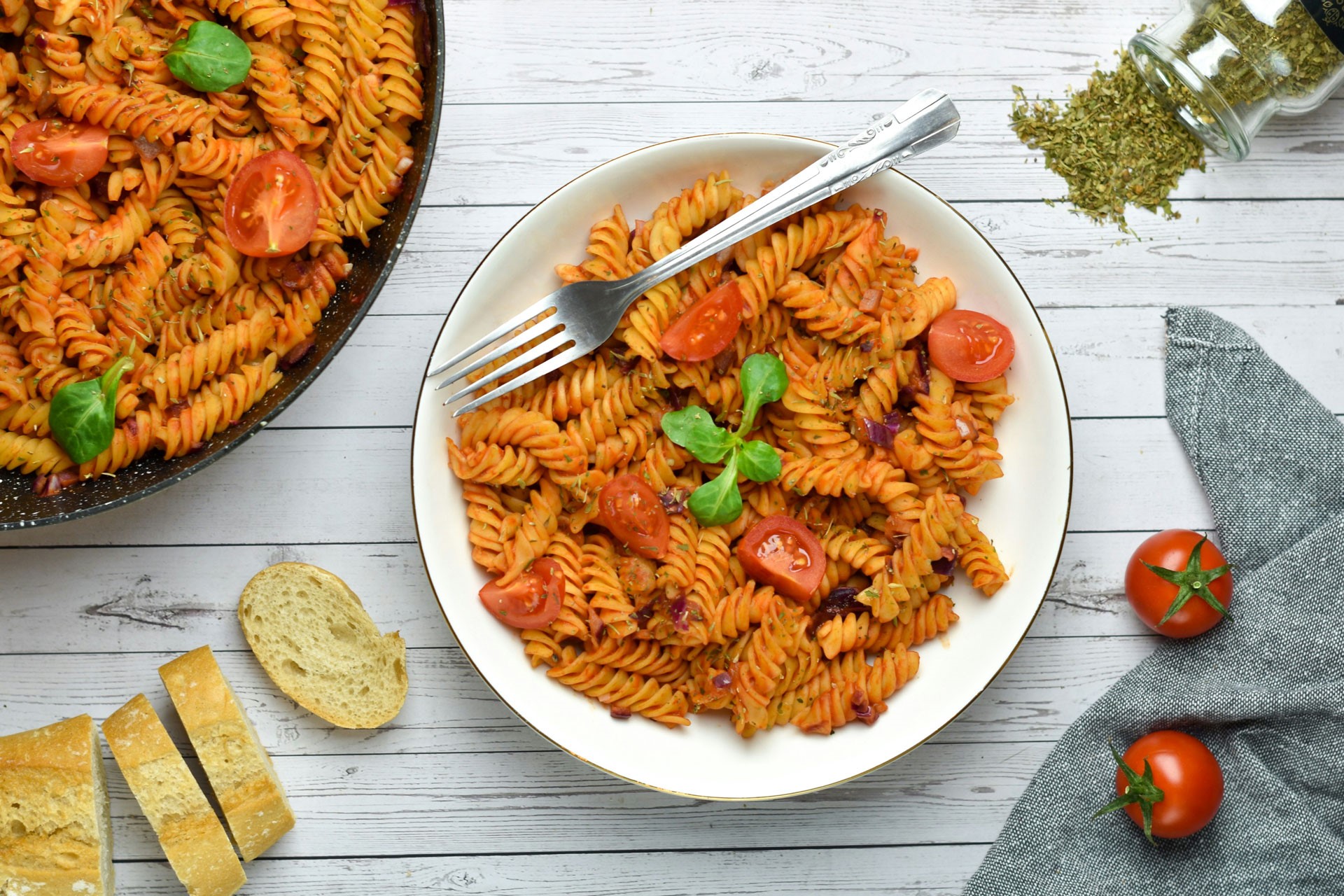
All marathon runners know the key to success lies not only in the relentless training, but also in your food choices. What you eat in the weeks and days leading up to the big day is crucial to keeping your body fuelled for 26 miles – and while everyone is unique, there are general guidelines to follow to give your body the power it needs to cross the finish line. Here Georgia Chilton, Senior Nutritionist at Fresh Fitness Food, shares her top marathon nutrition tips. Here’s a guide on what to eat before, during and after the London Marathon.
London Marathon: Expert Nutrition Advice
In The Weeks Leading Up To The Marathon
‘First and foremost you need to ensure you are consuming enough calories to support your energy output,’ says Chilton. ‘If this is insufficient, your training and recovery will likely start to suffer. Not fuelling your body appropriately will quickly catch up with you. It can take the form of adverse effects such as low energy levels and increased frequency of injury or illness.’
While everyone is individual, Chilton advises against a low carbohydrate diet in the weeks leading up to race day, plus recommends cutting down on highly processed foods and alcohol.
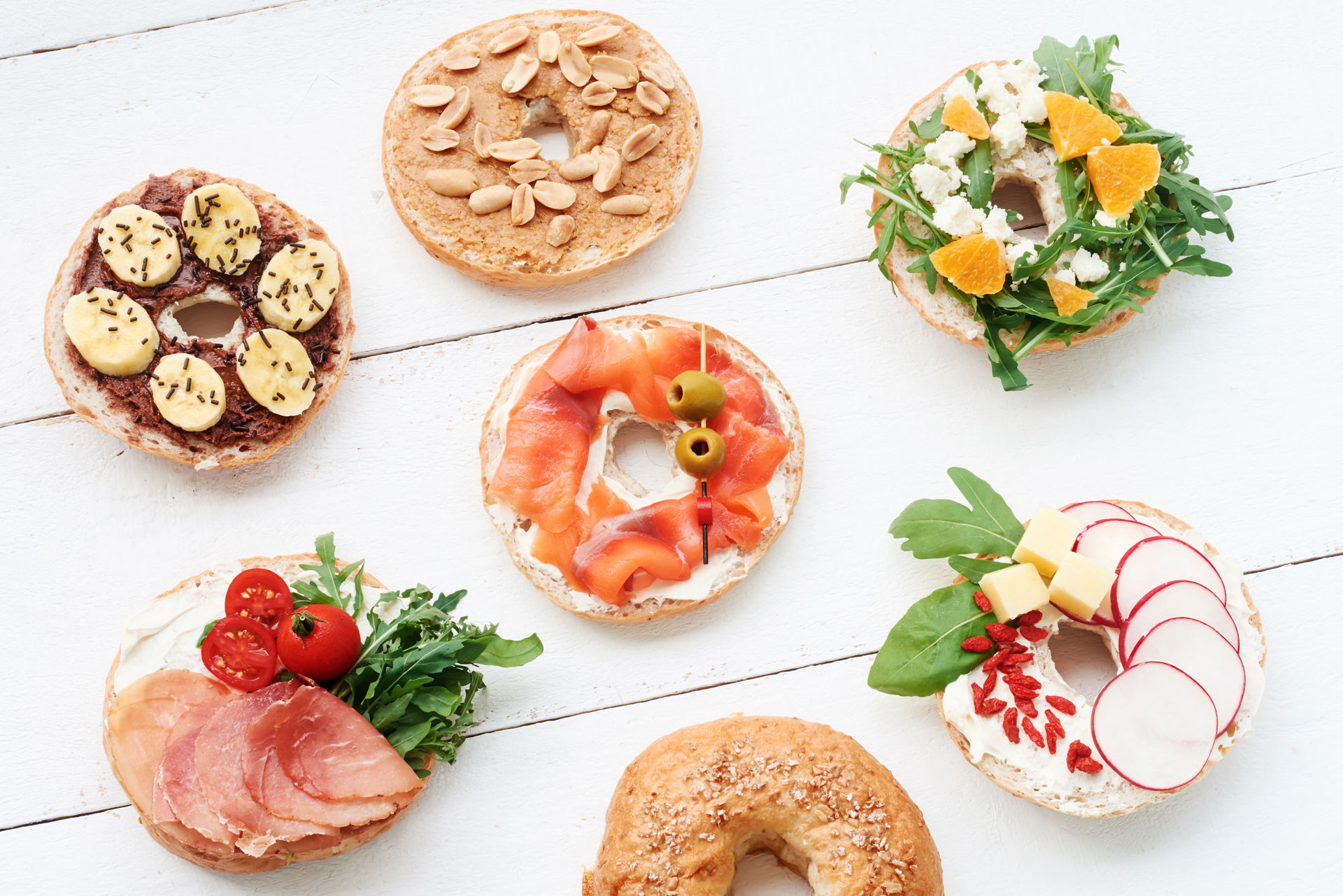
Getty Images
3 To 5 Days Before
Rather than simply having a big meal the night before, Chilton suggests using the week leading up to race day to fuel your body with complex carbohydrates.
‘A frequent mistake made by athletes is eating one extra large dinner the night before the event,’ says Chilton. ‘The problem with this is that it doesn’t give your body enough time to digest and you might still feel lethargic and perhaps bloated in the morning. On top of that, it’s not as efficient to try to fill your muscles with glycogen from just one meal.
‘For this reason, it’s better to start choosing your carbohydrates wisely three to five days prior to your event,’ she adds. ‘Since you’re tapering your activity levels over this time, the glycogen will accumulate in your muscles ready for race day.’
Rather than dramatically increasing the amount you eat, Chilton recommends keeping your total calorie intake for the day in line with your normal intake, but swapping fats for an increased volume of carbohydrates. ‘Try to obtain around 70 percent of your intake from carbohydrates, prioritising complex carbohydrates from whole food sources, such as whole grain pasta, rice, sweet potato, quinoa, oats, lentils and beans.’
She adds that it’s also important to keep your protein intake high – this not only helps muscle recovery, but also slows the digestion of carbohydrates.
2 To 4 Hours Before
Chilton recommends another high carbohydrate meal to keep your glycogen stores topped up just before the race. ‘Try to eat breakfast three to four hours before you cross that start line to allow optimal digestion and storage,’ she says.
‘To put it crudely, this will also allow yourself enough time for the bowels to start moving and mean you can hopefully visit the toilet before the start,’ she adds. ‘It becomes a payoff between waking up early and getting that pre-race meal in, so experiment with what works with you in training and have confidence in that. My usual go-to for breakfast is overnight oats/porridge or a bagel with peanut butter and a banana.’
And finally: don’t forget about water. ‘It is important to note that throughout this period, you need to ensure you are keeping your body hydrated,’ says Chilton. ‘Recognise that your body stores around 3g of water for every gram of glycogen stored, so during this period, you might find you have put on a little weight, congratulations! You have successfully carb-loaded and are ready for race day, and it’ll act as your rocket fuel.’
During The Race
Again, this is different for everyone: some people swear by energy gels, others find these can cause stomach issues. However, Chilton recommends consuming 30–60g of carbs per hour. If your body doesn’t respond well to gels, bars are a good alternative, or sweets such as jelly babies. While there will be food at aid stations, ensure you come prepared with your fuel of choice – and don’t try anything new on race day.
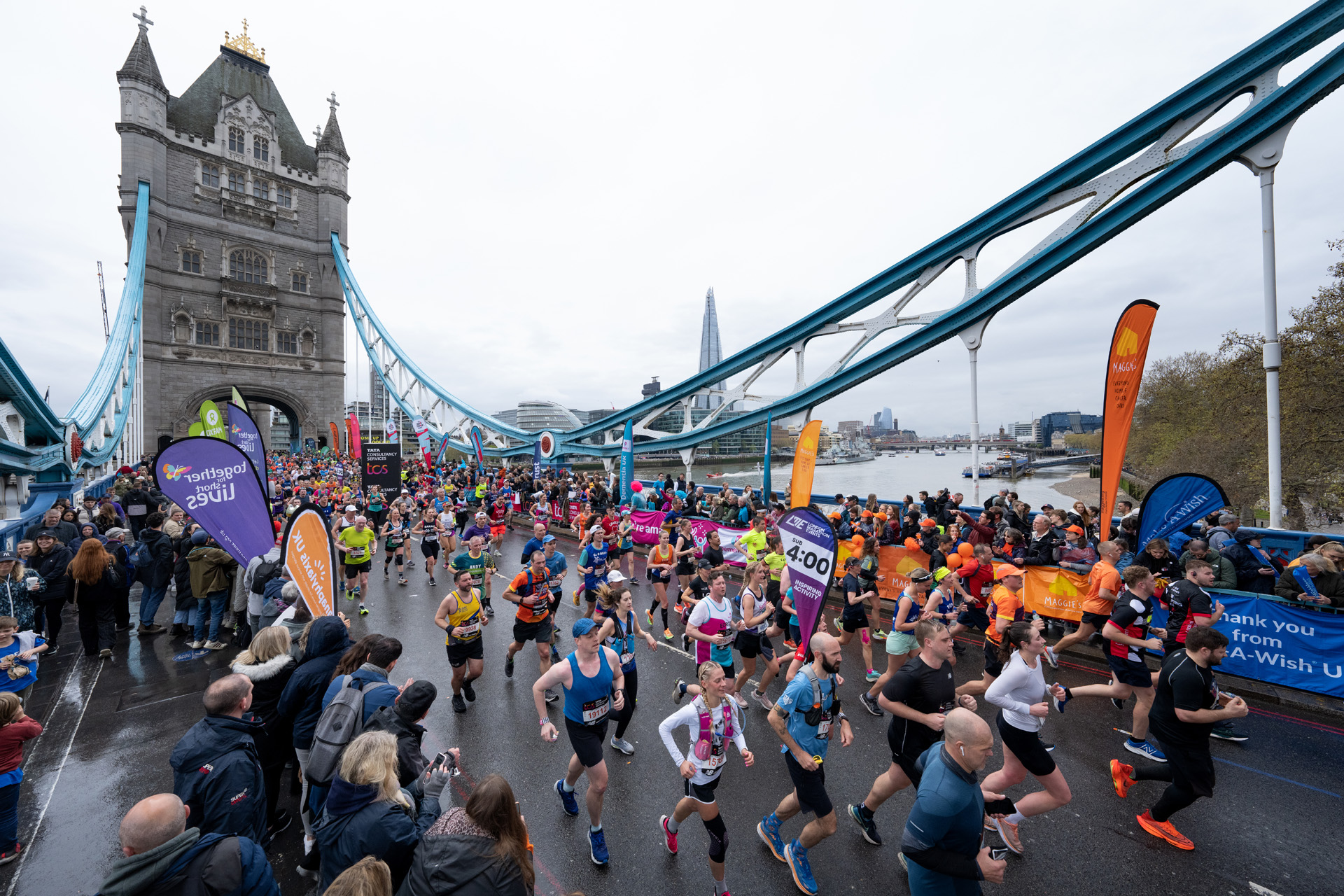
Participants cross Tower Bridge with the sub 4 hour pace runner during The TCS London Marathon on Sunday 23rd April 2023. © Thomas Lovelock for London Marathon Events/TCS London Marathon.
Post Race
Congratulations – you did it! Now it’s all about recovery. ‘You may not feel particularly hungry as soon as you have finished,’ says Chilton. ‘Having something quick, easy and nutritious, such as a shake/smoothie, is a simple way to pack in the nutrients you need.’
Once you’ve got your appetite back, Chilton advises consuming ‘carbohydrates to refuel your muscle glycogen stores and high-quality protein to initiate the repair of muscle tissue.’
In the hours after the marathon, ensure you’re drinking lots of water to get your hydration levels back up, as you’ll be very dehydrated from all that running (take particular care if you’re celebrating with a beer or a glass of fizz).

